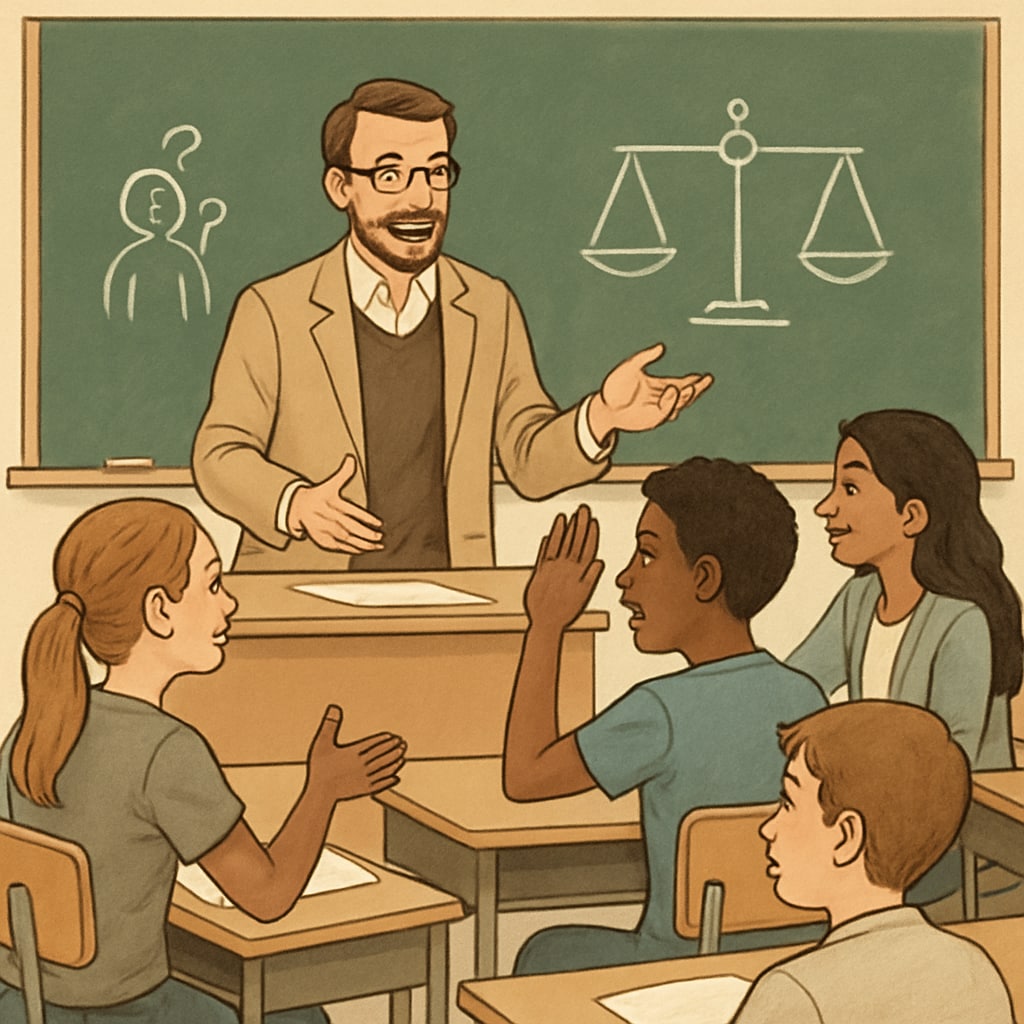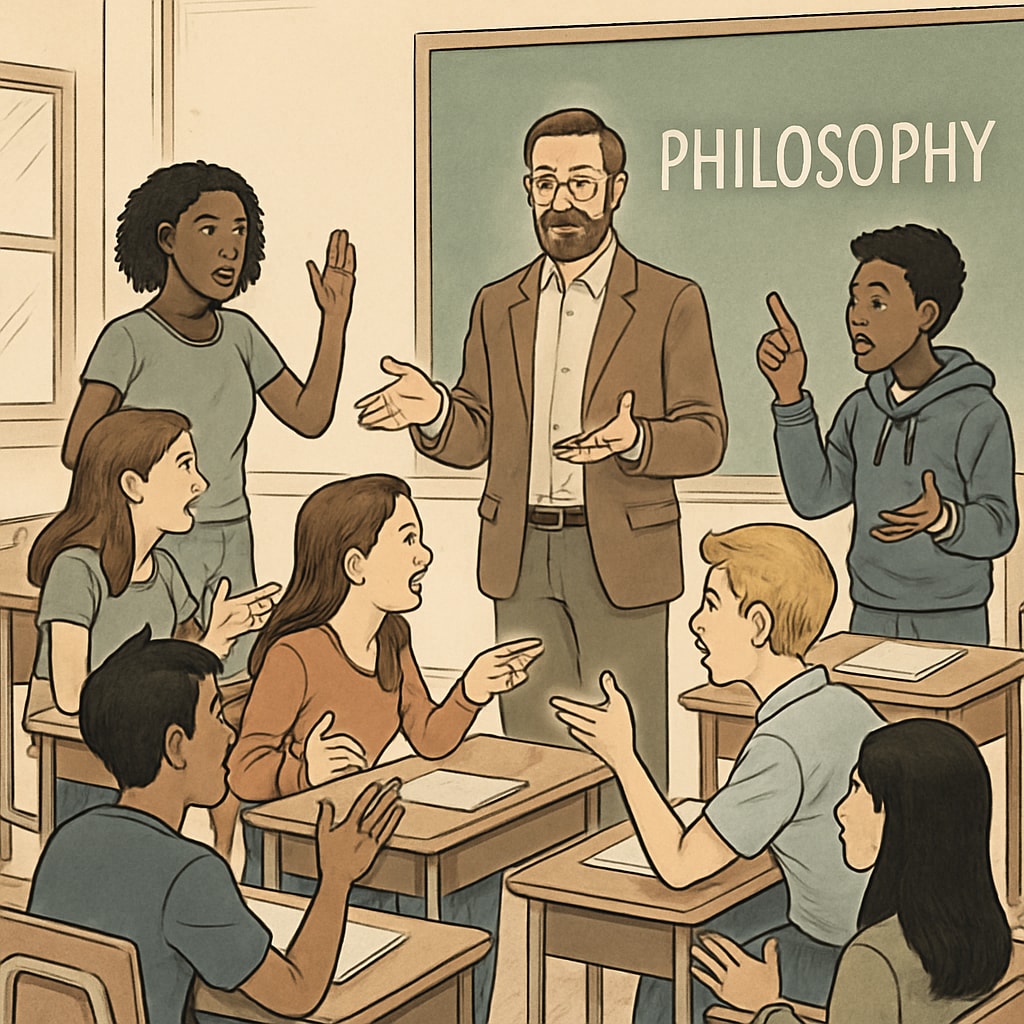A unique social experiment is inviting philosophy teachers to volunteer in K12 classrooms, aiming to bring philosophical inquiry into the heart of primary and secondary education. This initiative, titled “Philosophical Thinking in Action,” seeks to enhance students’ critical thinking and judgment skills, preparing them to navigate an increasingly complex world. By introducing philosophy to young learners, the experiment hopes to foster intellectual curiosity and encourage reasoned decision-making.

Why Philosophy in K12 Classrooms?
Philosophy has traditionally been reserved for higher education, yet its core principles—critical thinking, logic, and ethical reasoning—are essential for students of all ages. Introducing philosophy into K12 classrooms can provide students with tools to analyze complex issues, question assumptions, and consider multiple perspectives. As a result, this experimental program aims to cultivate these skills early, ensuring young learners are equipped to face challenges both academically and socially.
For example, a classroom discussion on ethical dilemmas can encourage students to reflect on their values, while exploring concepts like free will or justice can stimulate intellectual curiosity. According to the Philosophy overview on Wikipedia, philosophy is not just an academic subject but a way of thinking that can transform how individuals approach problems.
How Philosophy Teachers Can Get Involved
This social experiment is calling for philosophy teachers from universities and colleges to volunteer their time and expertise. By bringing their knowledge into K12 classrooms, educators can help bridge the gap between academic philosophy and practical application. Volunteers will work closely with schools to design interactive lessons that incorporate philosophical thinking into existing curricula.
Teachers can contribute by:
- Creating engaging lesson plans that focus on philosophical concepts.
- Hosting classroom discussions on topics like ethics, logic, and epistemology.
- Providing training sessions for K12 educators to integrate philosophy into their teaching.
Volunteering for this program not only allows teachers to make a meaningful impact but also provides them with a unique opportunity to explore new ways of teaching philosophy. Britannica’s Philosophy overview highlights the subject’s relevance in developing clear and reasoned thinking, which is invaluable for students at any educational level.

Challenges and Opportunities in the Experiment
While the benefits of introducing philosophy into K12 education are clear, there are challenges to consider. One major hurdle is adapting philosophical concepts to be accessible and engaging for younger learners. Additionally, schools may need to allocate time and resources, which could be difficult in already packed curricula.
However, the opportunities are equally compelling. This initiative has the potential to transform how students think and interact with the world. By encouraging open discussions and fostering intellectual curiosity, philosophy teachers can inspire a new generation of thinkers. For those willing to volunteer, this is a chance to pioneer a new approach to education—one that values deep, thoughtful engagement over rote memorization.
Readability guidance: The article uses short paragraphs and lists to summarize key points. Active voice and transitional words ensure clarity and flow. Images are strategically placed to complement the content, and external links provide additional depth.


